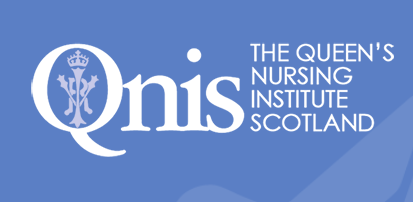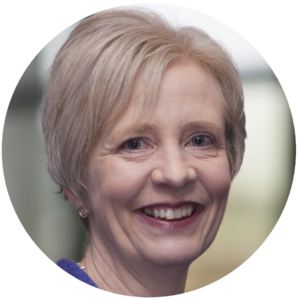


CC: Barbara, we had very much been looking forward to welcoming you to Scotland to hear from you at our conference on 1st April. Tell us a bit about yourself and how you have seen primary and community care develop during your career.
BS: Having worked in a hospital setting for a number of years after qualifying I became a health visitor. I was very struck by how little I was able to use my acute care skills while working as a health visitor – what I wanted was a job that was both HV and district nurse! I started working with a male GP in an inner-city area of Birmingham and we noticed that it was difficult for many women in that area to consult a male GP because of their religion. With the support of the GP we set up a walk in clinic with me consulting and we were overwhelmed by the number of people who came in to ask questions about their health or get a blood pressure check – all health maintenance measures. Learning from that experience, we eventually introduced the nurse practitioner role, and that role is now embedded in primary health care. Now nursing practice has evolved to take up this challenge. District nurses have an incredibly sophisticated role, making it possible to deliver ‘hospital at home’. The nurses in the Highlands and Islands provide primary care and more to those who otherwise would not have it. These are wonderful nursing roles that help us to achieve universal health care. Without nurses, that would not be possible.
CC: Nursing Now’s work inspires me greatly because it is truly international, and I know you are working closely with WHO and nurse leaders on every continent. At QNIS we are developing nursing leaders through the Queen’s Nurse programme which is based on an Excellence profile which has four key attributes: making a difference; bringing others with you; acting with tenacity and resilience; showing humility and reflecting deeply. What are your reflections on the key attributes of nursing leadership in 2020?
BS: We know from the State of the World’s Nursing report that 90% of nurses globally are women. We also know from that report that women face more obstacles to becoming senior leaders so one of our interests at Nursing Now is looking for opportunities to develop the leadership skills of young nurses and to encourage all nurses to reflect on how they can be more influential, especially in creating policy. I like the QN Excellence Profile because being reflective is such an important aspect of leadership. We constantly need to ask ourselves what is the best position I can take now? Should I be taking a ‘balcony view’ to see the totality of what’s going on or should I be ‘down among the dancers’ because that’s where my team needs me right now? And part of resilient leadership is, I believe, that ability to see different views of any situation almost on a moment by moment basis, recognising patterns, looking for causes and helping ourselves and others solve problems. I would add too that authentic leadership is very important to me. Being able to be my authentic self who can genuinely make a connection with those I work with is what keeps me open to understanding another’s viewpoint and to humility. But humility is not the same as being afraid to ask for what you need. We have to be able to be assertive too. No nurse should be in a leadership position without resources to do a good job – budget, people, equipment, supplies. And we have to identify what we need and ask for it in a loud voice. That’s how things will change.
CC: I would strongly agree with your views on leadership and we are delighted to be part of Nursing Now’s Nightingale Challenge to develop young leaders with eight out of twenty of this year’s Queen’s Nurse candidates in the 35 or under category. Here in Scotland, and I’m sure this is happening across the world, during the current COVID19 pandemic nurses are stepping in to working in new ways incredibly rapidly. Could you share a couple of examples which have inspired you, which you see as the way forward for nursing, building on the lessons we are learning in this moment?
BS: I have been so inspired by the way that newly qualified and student nurses have stepped in to boost the workforce. On a call with some young nurses they requested that they have support and supervision so that they could learn how to put on PPE for example, or simply become more confident. I was a little surprised that this had not been provided – or even thought of. But I was reminded that nursing has a reputation for not being kind to our young nurses and how important it is to provide a role model, mentoring and coaching – never more so than at this time.
This supportive supervision must be built in to nursing urgently and for the future. This is how nursing will change and become a more confident profession through contact learning from great leaders. And those leaders will create another leader.
Compassionate leadership has never been more important than it is at this moment. Let’s learn from that and let’s change our narrative to one of nurturing our young, not eating them.
CC: Today is the 200th anniversary of Florence Nightingale’s birth. She was instrumental in founding the Queen’s Nursing Institute in Scotland and we are grateful for her example and legacy. What do you take from her pioneering work which speaks to you today?
BS: Had Nightingale been here this year, the year of the global pandemic, she would be urging us all to get involved with using evidence to highlight what’s good and lobbying to change what isn’t. What is good is the incredible care that nurses everywhere have provided to people with this awful virus – and to their families who have been distressed and bereaved. That care and compassion will never be forgotten. Some of what has to change is the provision of equipment, improved nursing staffing levels to ensure that nurses themselves are safe, and supporting nurses and all health workers through such stressful work. You can probably add more to these lists.
Nightingale went beyond providing care to talking about what she found and using her influence to change the way that the public thought about nurses at that time, and to get governments to invest in nursing and in health reform. Today she would be known as “the social reformer with the spreadsheet” – a phrase from Carola Hoyos’ excellent Guardian article about Florence Nightingale.
CC: I love the phrase ‘social reformer with a spreadsheet’, that sounds like the title of a whole new blog! So, to finish, what is your message for community nurses in Scotland on International Nurses Day 2020?
BS: International Nurses Day 2020 is taking place in an atmosphere of sadness for those we have lost and admiration for the nurses – and all health workers – who have risked everything to care for people during the pandemic. It is a time, this year, for reflection as well as honouring each other.
We are asking nurses – and others – to light a candle and post a picture of it on social media. You can put it in your window too and ask your neighbours to do the same. This is to remember those nurses and other health workers who have given their lives in this pandemic and to honour all health workers who are caring for people. Check out the Nursing Now website for more details.
This is a time to be kind to each other. We are always kind to our patients and sometimes not to our colleagues. This International Nurses’ Day, let’s take a moment to thank each other for turning up, working hard, being skilled and being a leader.
Let me please thank all of you for all the ways that you touch your patient’s lives for good. Never underestimate what that means.
CC: That message to be kind to ourselves and one another has been a recurring theme of our messaging over the last seven weeks. It is so important. And finally, what is your message for policy makers and executive leaders to make this possible?
BS: The State of the Worlds’ Nursing (SOWN) report was the first of its kind in WHO’s history. It showed clearly that the world needs more nurses and that investment in nursing has been slow and inadequate. If ever there was a time to reinforce the messages of SOWN it is now. Governments will have to invest in recruiting and educating more nurses and then keeping them in the workforce. This means pay that is attractive, conditions that enable practice and appreciation for the work that is done every day by leaders.
CC: Barbara, thank you so much. I’d like to express our gratitude to you, and everyone at Nursing Now, for the work you are doing to support nursing leaders globally.
This interview originally appeared on the website of the Queen’s Nursing Institute, Scotland on 12th May. You can access the original piece, here.


